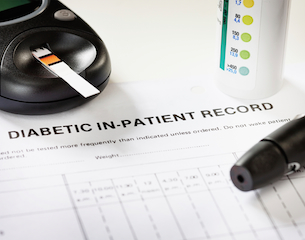
The Employment Appeal Tribunal (EAT) has ruled that type 2 diabetes which is controlled by diet and does not have a substantial adverse effect on an employee’s day-to-day activities does not amount to disability discrimination.
In the case of Metroline Travel v Stoute, the claimant was a bus driver who suffered from type 2 diabetes which he controlled largely by following a diabetic diet; in particular, avoiding sugary drinks.
Stoute brought a disability discrimination claim following his dismissal for gross misconduct. It appears that his dismissal followed an incident when he was late for/absent from work because of a digestive problem, which was a side effect of his medication.
The Employment Tribunal had held as a preliminary issue that he was disabled within the definition. The claimant lost his substantive claim but the employer appealed against the preliminary decision that he was disabled, because the workforce had a number of other employees suffering from type 2 diabetes.
The EAT allowed the employer’s appeal. The EAT judge considered the rule about ignoring any ongoing treatment but decided that abstaining from sugary drinks was a minor diet alteration rather than a particular diet and did not amount to treatment.
The EAT also did not accept that not being able to consume sugary drinks was a substantial interference with day-to-day activities and that the claimant could prevent the risk of a hypoglycaemic attack by sticking to the diet.
However, this decision should not be taken by employers to mean that type 2 diabetes can never be a disability under the Equality Act 2010.
Employers will need to take steps to assess the effect of the disease when seeking to ascertain whether an employee is disabled because it may affect the steps employers need to take and the potential risks involved when dismissing a member of staff.
But it is does make clear that a condition controlled by a minor alteration of diet will not be viewed as disability discrimination.
Paula Bailey, employment law partner at Howes Percival, said: “This is a welcome decision for employers [because] it ensures that the bar is not set too low for determing whether an employee has a disability, especially [because] once an employee is treated as disabled the obligation to make reasonable adjustments can be triggered, which can be fairly onerous.”